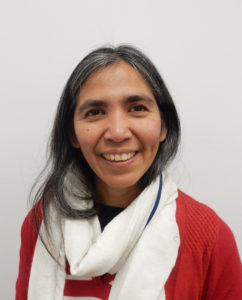Helping migrant spouses – one women’s vocation
Su Sullivan says her work supporting isolated and disadvantaged migrant women makes her feel like a big tree.
“Sometimes I feel like I’m a tree. A big tree with its branches stretched out like welcoming arms and a big canopy of leaves offering shade,” she says.
Su works in Melbourne’s south east as a volunteer offering support to migrant women struggling to make new lives in Australia.
 About a decade ago she founded the Asian Women’s Friendship Group – based around the Springvale Rise Primary School.
About a decade ago she founded the Asian Women’s Friendship Group – based around the Springvale Rise Primary School.
The group supports mostly Thai women who are here in Australia on spouse visas.
Su says there are issues around these women being totally reliant on their husbands for everything.
“Not having family nearby can also be difficult; and a big barrier to these women gaining some kind of independence is not knowing the language,” she said.
“Without any language, they find it difficult to find help or access services or even just contact other people.
“We try to support these women through friendship,” said Su, herself a migrant from Thailand who came to Melbourne to be with her Australian husband.
Su said the group also sees periodic incidents of domestic violence.
“When this happens and a women flees from the home it can be a big problem. They don’t know where to go to get help or how to find information,” she said.
“They are not professionally supported in many cases so that is where we step in as volunteers.”
The groups helps out as best it can, interpreting for the women, pointing them to services and also giving them some emotional support.
“Sometimes the women run out of money or have problems with Centrelink and we try to help them with those sorts of things,” Su said.
“If Centrelink cuts off their support, it can be really difficult for them to live.
“And if their situation ends in the family court things can be bewildering for them.
“There are not enough interpreters and they are really expensive anyway. I’ve been to court three time recently with women I support,” she said.
Su said most of the women the group supports are married to Australian men and they come just with a suitcase. They have no family or friends here.
“Often when there is a dispute, the husband’s family will take his side and the women feel even more isolated,” Su said.
“So we see a gap in the services that do exist – they only operate during business hours.
“With no support we fear what happens to these women, their lives can become hell,” she said.
Su says her group struggles with funding. They have received funding from the City of Greater Dandenong and the Victorian Government’s Office of Multicultural Affairs and Citizenship but they would like to be able to offer professional around-the-clock services.
Su says she finds volunteering with the group rewarding.
“When I first arrived in Australia 16 years ago I looked for work but I found it difficult to get a job and I started volunteering. Now, I couldn’t leave the women I support so I keep going. It’s very rewarding, the women are wonderful and I feel like I’m making a difference,” Su said.
She is currently enrolled in a ground-breaking course for leaders from CALD communities in the Prevention of Violence Against Women (PVAW) was recently launched in Melbourne.
The course, facilitated by migrant and refugee settlement agency AMES Australia, has brought together 42 leaders from different language groups and communities to explore ways of combating family violence.
It aims to build the capacity of leaders from CALD communities to be able to lead actions to reduce violence against women in their own communities and also in the broader Australian community.
Laurie Nowell
AMES Australia Senior Journalist












